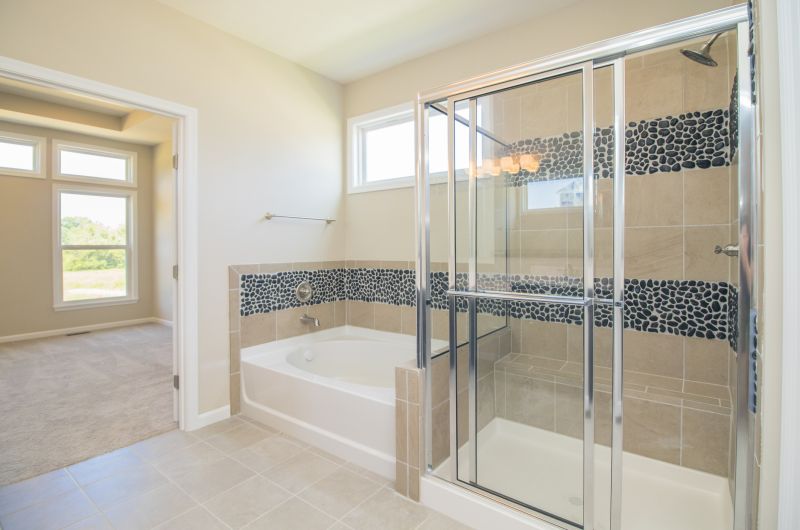Shower Enclosure Design Tips
Welcome to Aberdeen Showers
Shower Enclosure Design Tips
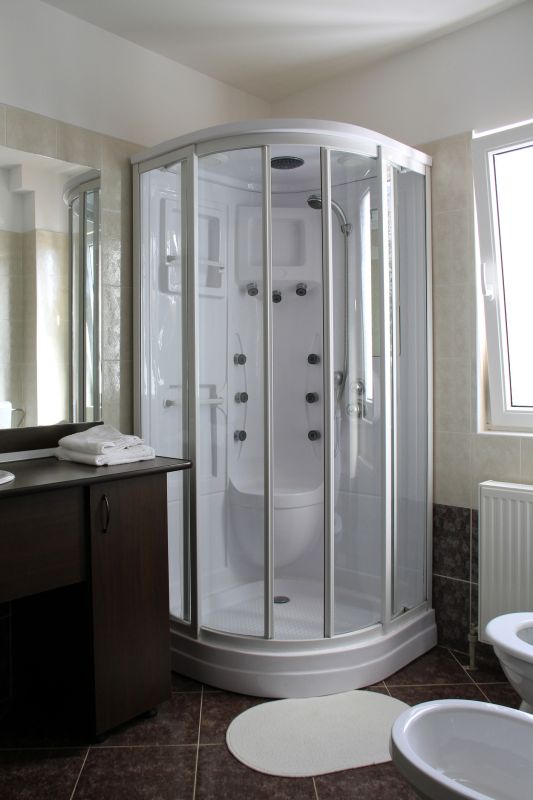
Shower Enclosure Design Tips for Homeowners
Shop for Shower Enclosure Design Tips
Designing a shower enclosure involves more than just picking a style that suits your bathroom decor. Homeowners should consider several factors to ensure their shower enclosure is both functional and visually appealing. From selecting the right materials to considering the enclosure's dimensions, each decision contributes to the overall success of your bathroom design.
One of the primary considerations is the material used for the shower enclosure. Common materials include glass, acrylic, and fiberglass, each offering different levels of durability and aesthetic appeal. Glass is often chosen for its sleek, modern look and ability to make a space feel larger, while acrylic and fiberglass are valued for their lightweight and cost-effective properties.
The finish of the shower enclosure can significantly impact the bathroom's ambiance. Options range from clear or frosted glass to more decorative etched designs. Clear glass offers a minimalist and open feel, whereas frosted or etched options provide more privacy and can add a touch of elegance.
Dimensions are crucial when planning a shower enclosure. The size of the bathroom and the available space will dictate the enclosure's dimensions. It's important to ensure there is adequate room for comfortable movement within the shower, while also considering the location of other bathroom fixtures.
When selecting a shower enclosure, homeowners should also consider the type of door that best suits their needs. Sliding doors are ideal for smaller spaces, as they don't require additional clearance, while hinged or pivot doors provide a wider opening, which can be beneficial for accessibility.
Maintenance and upkeep are important factors in the longevity of a shower enclosure. Materials like glass may require regular cleaning to prevent water spots and soap scum buildup. Homeowners should choose finishes and materials that align with their willingness and ability to maintain them.
Material Selection
Choose from glass, acrylic, or fiberglass based on durability and style preferences.
Finish Options
Consider clear, frosted, or etched finishes for privacy and aesthetic appeal.
Door Types
Opt for sliding or hinged doors based on space and accessibility needs.
- Material: Glass, Acrylic, Fiberglass
- Finish: Clear, Frosted, Etched
- Door Type: Sliding, Hinged, Pivot
- Dimensions: Customizable to fit available space
- Maintenance: Regular cleaning required
| Attribute | Options |
|---|---|
| Material | Glass, Acrylic, Fiberglass |
| Finish | Clear, Frosted, Etched |
| Dimensions | Customizable |
Ultimately, the design of a shower enclosure should reflect the homeowner's personal style while also meeting practical needs. By carefully considering materials, finishes, dimensions, and maintenance requirements, homeowners can create a shower space that is both beautiful and functional.
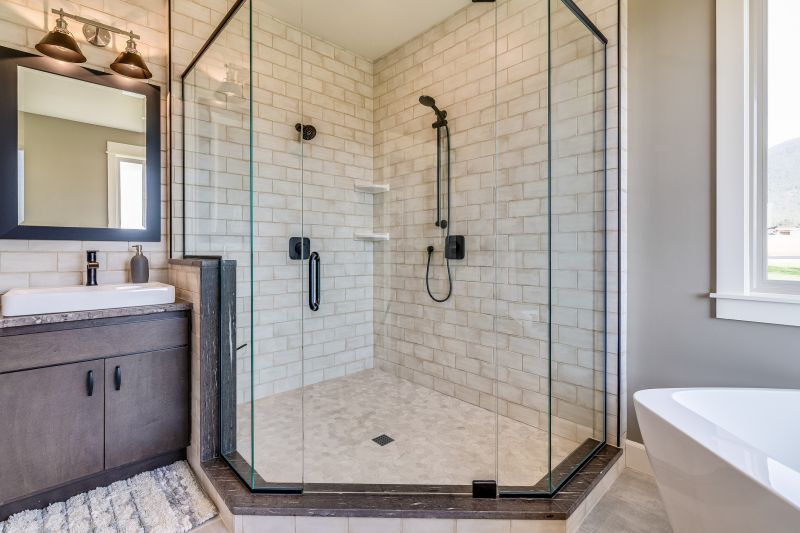
Glass Shower Enclosure
Sleek and modern, glass enclosures create an open and spacious feel in bathrooms.
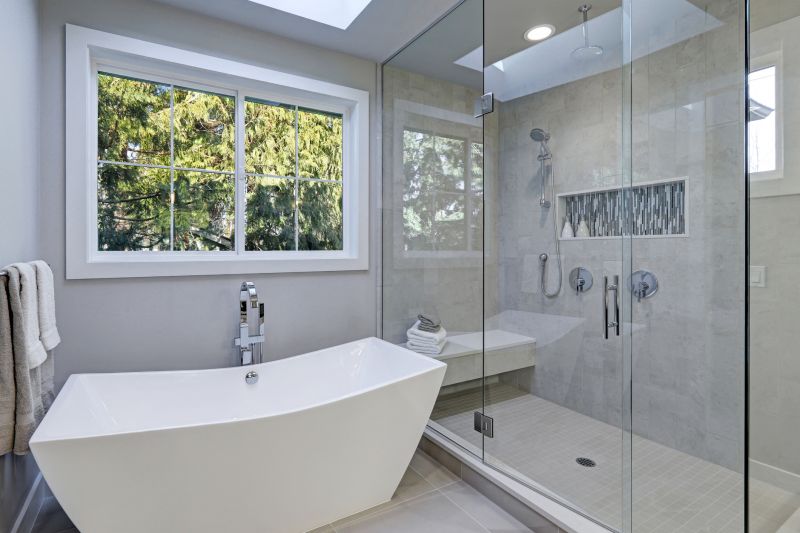
Acrylic Shower Enclosure
Lightweight and cost-effective, acrylic enclosures offer durability and style.
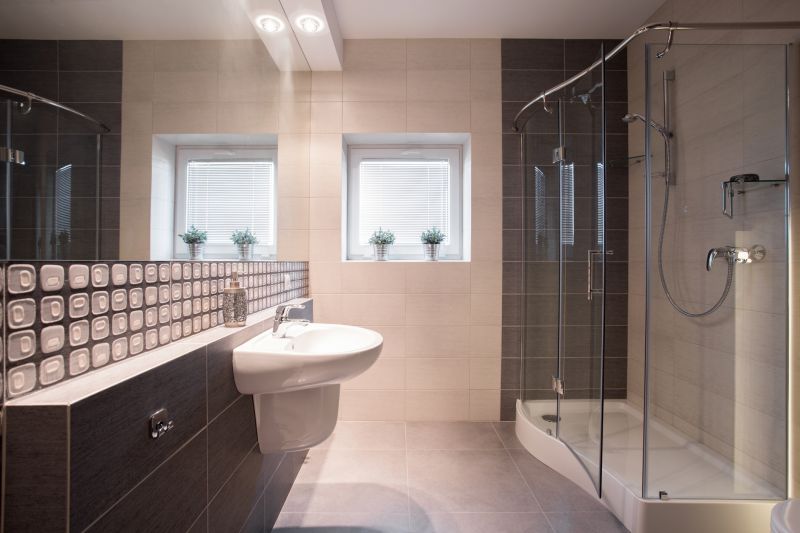
Frosted Glass Finish
Provides privacy and adds elegance with a decorative touch to shower enclosures.
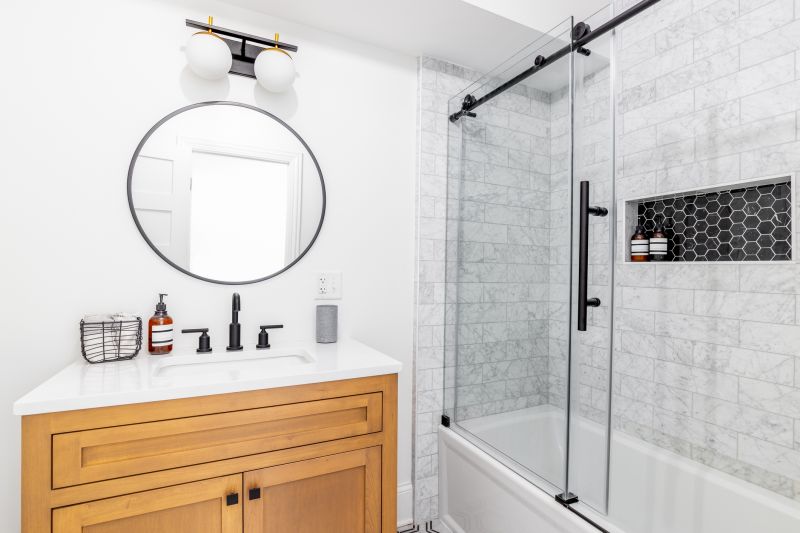
Sliding Shower Door
Ideal for small spaces, sliding doors require no extra clearance.
Choosing the Right Materials for Your Shower Enclosure
Shop for Shower Enclosure Design Tips
Explore the Best Material Options for Durability and Aesthetics
When designing a shower enclosure, selecting the right materials is crucial for both durability and visual appeal. The choice of materials can significantly impact the longevity and maintenance needs of the shower space. Homeowners are often faced with various options, ranging from glass to acrylic, each offering distinct advantages and aesthetic qualities.
Glass is a popular choice for shower enclosures due to its sleek appearance and ability to make a bathroom feel more spacious. It is available in different types, such as clear, frosted, or textured, allowing for customization based on privacy preferences. Tempered glass is often recommended for its safety features, as it is designed to shatter into small, less harmful pieces if broken.
Acrylic is another common material used for shower enclosures. It is lightweight, easy to install, and resistant to mold and mildew. Acrylic panels can be molded into various shapes and sizes, making them a versatile option for custom shower designs. Additionally, acrylic is less prone to scratching compared to glass, although it may not offer the same high-end look.
For those seeking a more traditional or rustic appearance, stone or tile can be excellent choices. These materials provide a natural and luxurious feel but may require more upkeep to prevent grout lines from becoming discolored. Sealing the stone or tile is essential to maintain its appearance and prevent water damage.
- Glass: Clear, frosted, or textured options
- Acrylic: Lightweight and mold-resistant
- Stone: Natural, luxurious appearance
- Tile: Customizable and traditional
| Material | Finish | Dimensions |
|---|---|---|
| Glass | Clear, Frosted | Customizable |
| Acrylic | Glossy | Flexible |
| Stone | Natural | Varied |
| Tile | Matte, Glossy | Customizable |
Maintenance is an important consideration when selecting materials for a shower enclosure. Glass surfaces can show water spots and soap scum, requiring regular cleaning to maintain their transparency. Acrylic, while easier to clean, can be sensitive to abrasive cleaners. Stone and tile may need periodic sealing and grout cleaning to preserve their appearance.
Tempered Glass
Offers safety and a modern look with options for clear or frosted finishes.
Acrylic Panels
Lightweight and easy to install, with resistance to mold and mildew.
Stone Tiles
Provide a natural, luxurious feel but require more upkeep.
Ceramic Tiles
Customizable and traditional, available in various finishes.
Ultimately, the decision on which materials to use will depend on the desired aesthetic, budget, and maintenance capabilities. Each material offers unique benefits and challenges, making it important to consider all aspects before making a final choice. By evaluating these factors, homeowners can ensure a beautiful and functional shower enclosure that meets their needs.
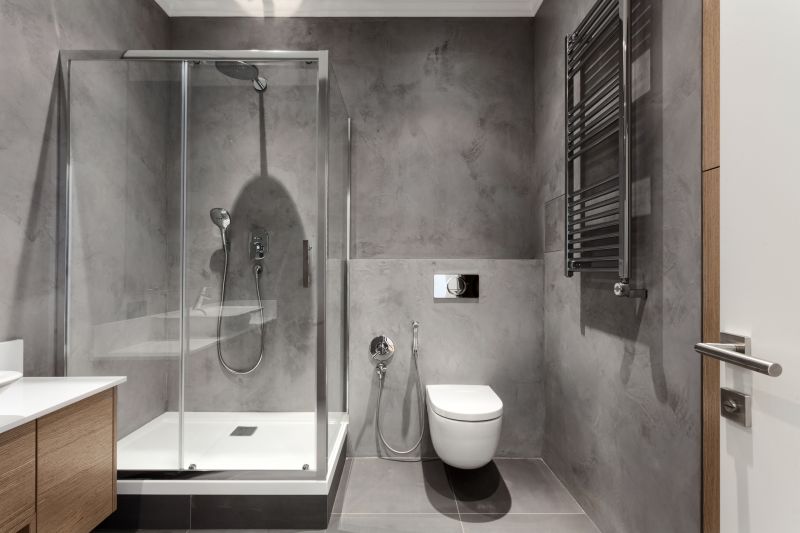
Tempered Glass
Safety-focused material with modern appeal, available in clear or frosted finishes.
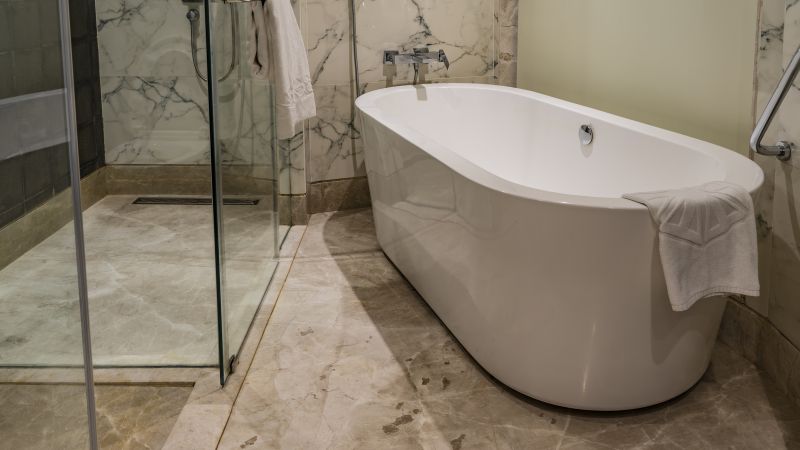
Acrylic Panels
Lightweight, mold-resistant panels, easy to install and maintain.
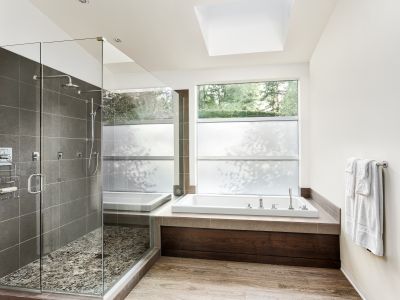
Stone Tiles
Natural, luxurious tiles requiring regular upkeep for lasting beauty.
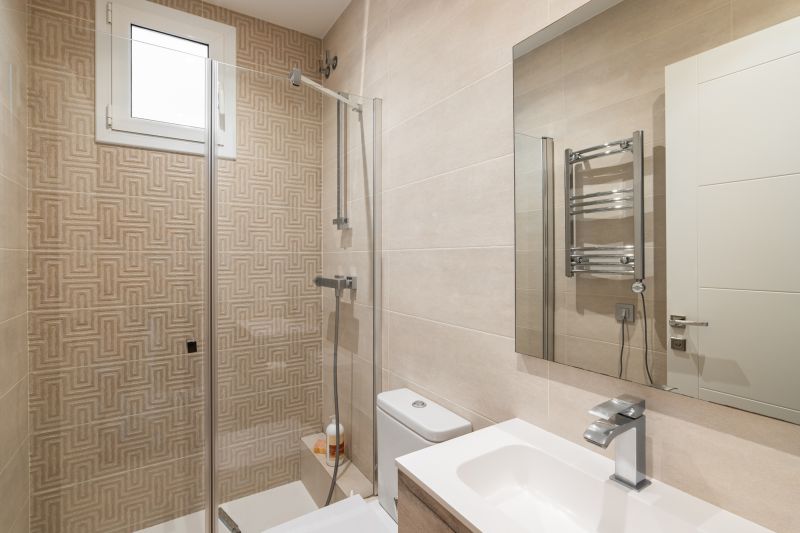
Ceramic Tiles
Traditional, customizable tiles available in matte or glossy finishes.
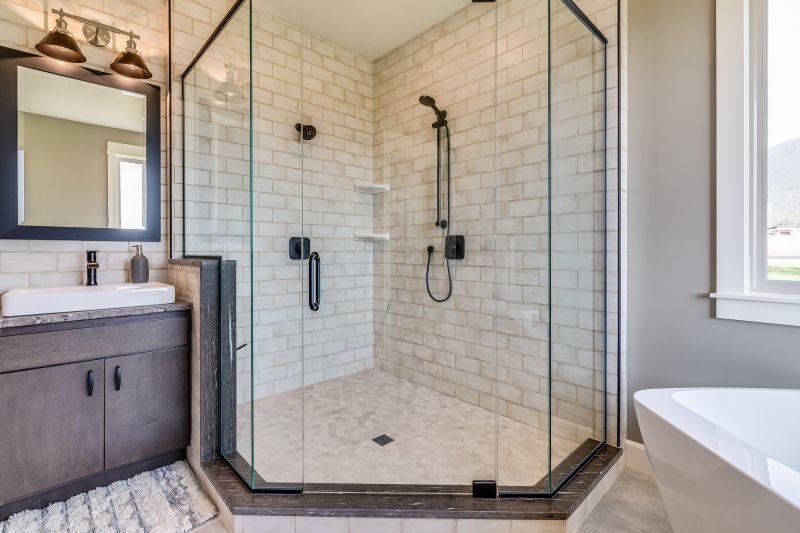
Optimizing Shower Enclosure Size and Compatibility
Shop for Shower Enclosure Design Tips
Ensure Your Shower Enclosure Fits Perfectly in Your Bathroom Space
When designing a bathroom, the shower enclosure is a key element that requires careful consideration. The size and compatibility of the enclosure with the existing space can greatly influence the overall functionality and aesthetics of the bathroom. Homeowners should evaluate various factors such as the available space, the shape of the enclosure, and the type of doors that will best suit the layout.
Material choice is crucial for both durability and style. Common materials include glass, acrylic, and tempered glass, each offering different levels of transparency and strength. The finish of the enclosure can also impact the look and feel of the bathroom. Options such as frosted, clear, or textured glass can be selected based on privacy needs and design preferences.
Dimensions are another important aspect to consider. Standard enclosures come in a range of sizes, but custom options are also available for unique bathroom layouts. It is essential to measure the space accurately to ensure the enclosure fits well without overcrowding the room. The height of the enclosure should also be considered, especially in bathrooms with low ceilings.
Compatibility with existing plumbing and bathroom fixtures is another consideration. The placement of the showerhead, faucets, and drains should align with the enclosure to prevent any functional issues. Additionally, the type of shower door—whether sliding, hinged, or bi-fold—should be chosen based on the bathroom's layout and the ease of access required.
Maintenance and upkeep expectations are also important when selecting a shower enclosure. Some materials and finishes require more frequent cleaning to maintain their appearance, while others are more resistant to water spots and soap scum. Homeowners should consider their willingness to maintain the enclosure and choose a material and finish that aligns with their lifestyle.
- Material: Glass, Acrylic, Tempered Glass
- Finish: Clear, Frosted, Textured
- Door Types: Sliding, Hinged, Bi-fold
- Sizes: Standard and Custom Options
| Attribute | Typical Options |
|---|---|
| Material | Glass, Acrylic, Tempered Glass |
| Finish | Clear, Frosted, Textured |
| Dimensions | Standard and Custom Sizes |
Glass Enclosures
Known for their sleek appearance, glass enclosures offer a modern touch. Available in various finishes, they can be customized to fit any space.
Acrylic Enclosures
Acrylic provides a lightweight alternative, often easier to install and maintain. It is ideal for those seeking a durable yet flexible option.
Tempered Glass Enclosures
Tempered glass offers enhanced safety and strength, making it a popular choice for families. Its robust nature ensures longevity.
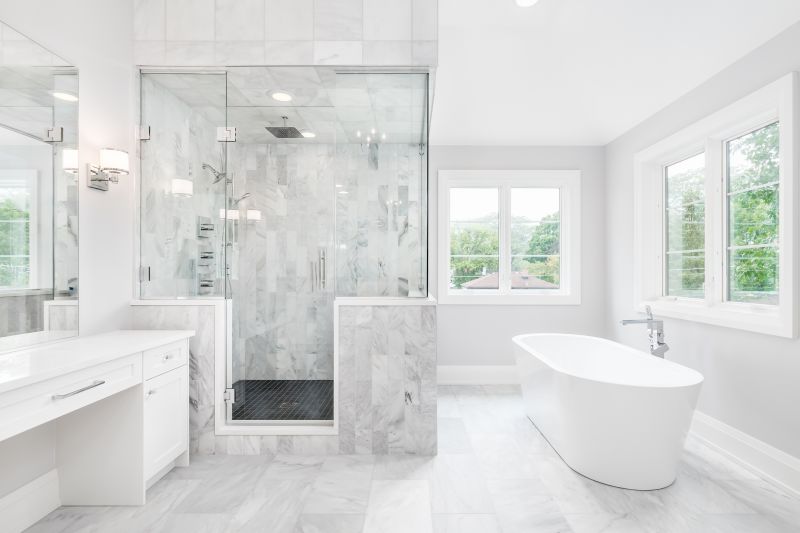
Glass Enclosures
Sleek and modern, customizable glass enclosures suit various bathroom spaces and design preferences.
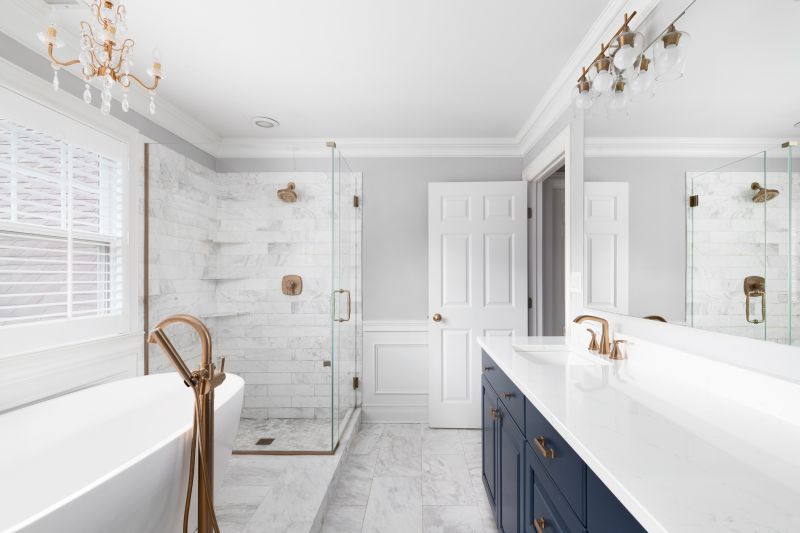
Acrylic Enclosures
Lightweight and easy to install, acrylic enclosures offer a durable and flexible shower solution.
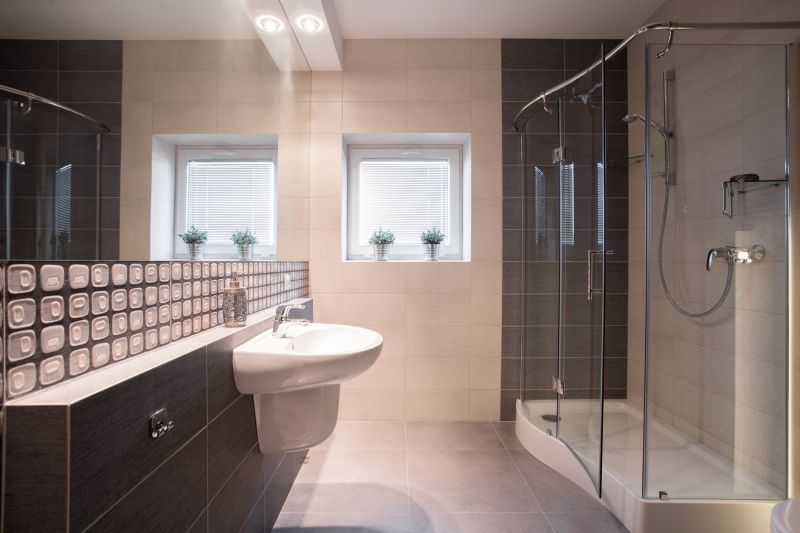
Tempered Glass Enclosures
Robust and safe, tempered glass enclosures provide enhanced strength, ideal for family bathrooms.
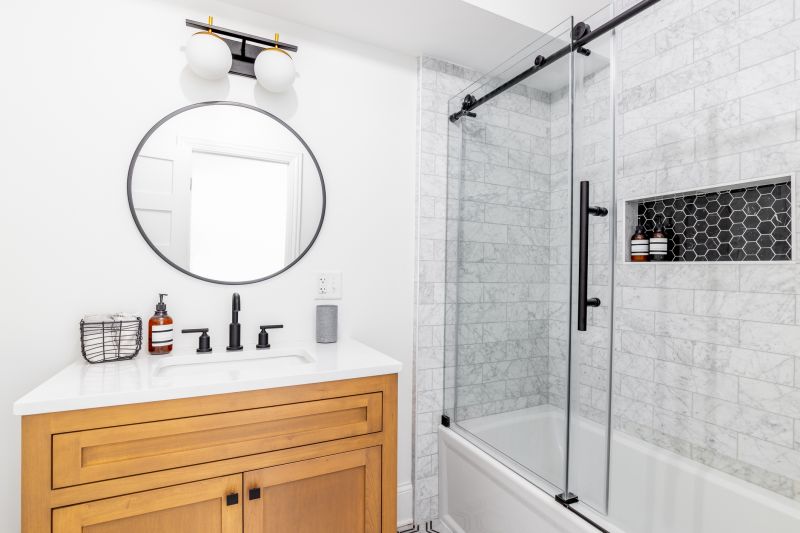
Sliding Shower Doors
Space-saving sliding doors offer convenient access and are ideal for compact bathroom layouts.
